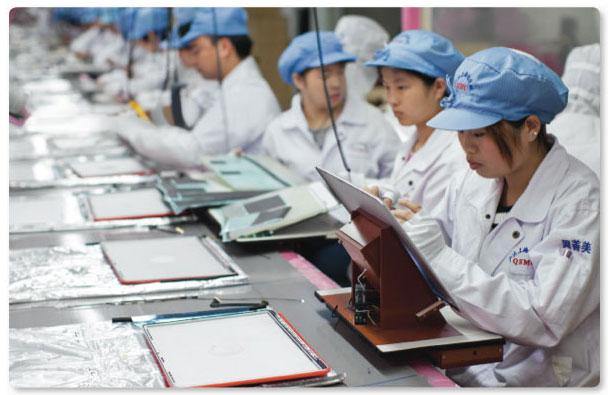In the wake of the collapse of sapphire maker GT Advanced Technologies, longtime members of Apple's supply chain have characterized the iPhone maker as a tough but fair partner who offers component makers a chance at success, provided they take proper precautions.

Officials from Pegatron and other unnamed Apple suppliers spoke with The Wall Street Journal about their relationship with the Cupertino, Calif., company, and gave some of the lessons they've learned over the years. The key takeaways were that suppliers should not promise things they cannot deliver, and that Apple partners should diversify and make arrangements with other companies.
While this might sound like basic business advice, suppliers believe those factors played a part in the implosion of GT Advanced, a sapphire maker that contracted with Apple but couldn't deliver the material as promised. In less than a year after it signed a half-billion-dollar contract with Apple, the company imploded and filed for bankruptcy.
For starters, GT Advanced told Apple it would be able to build extraordinarily large sapphire boules sized at 578 pounds -- double the size of competing products. But GT Advanced struggled to manufacture boules of sapphire at that size, experiencing poor yield rates and producing tons of material that was unusable.
Over-promising to Apple, which is known for being strict and demanding, is a critical mistake, suppliers who spoke with the Journal said. One person said that suppliers from Japan tend to be conservative in what they tell Apple they can deliver, which stands in contrast to the lofty promises made by GT Advanced Technology.
Still, Apple has a reputation for being difficult, with supply chain managers who are constantly looking to squeeze costs. Many of those managers are said to be former supplier employees, so they are extremely familiar with the costs and margins of components and are notoriously tough in negotiations.
Apple's product cycles are also cyclical, with quick ramp-up of production for new products, only for shipments to slow considerably before next year's newest model. As a result, one unnamed supplier said they might not add capacity at the levels that Apple wants, for fear of incurring too great a cost.
"For example, Apple might want us to increase 100 production lines, but we would only add 50 to 60 gradually," one anonymous supply chain manager told the Journal.
For its part, GT Advanced characterized its contract with Apple as "oppressive and burdensome," and suggested that the iPhone maker squeezed the small supplier into an unmanageable contract to provide scratch-resistant sapphire material. But longtime suppliers who have watched the collapse of GT Advanced have not portrayed Apple as so villainous.
In court filings, Apple has said it "bent over backwards" to help GT Advanced, in hopes that its Mesa, Ariz., facility would eventually begin to produce usable sapphire in sufficient quantities. Apple told the bankruptcy court that it continued to make payments to its former partner even though it failed to meet performance milestones.


